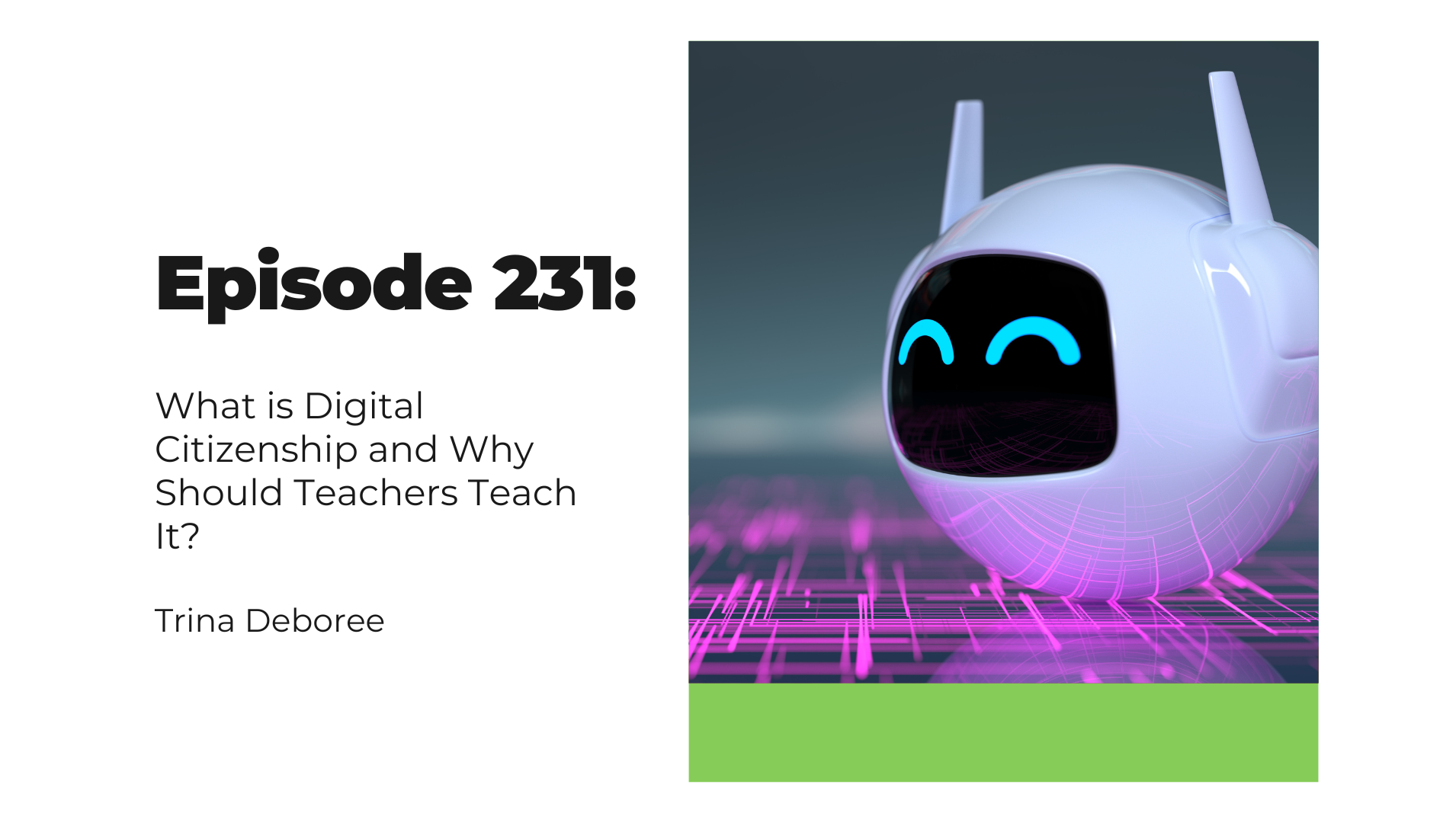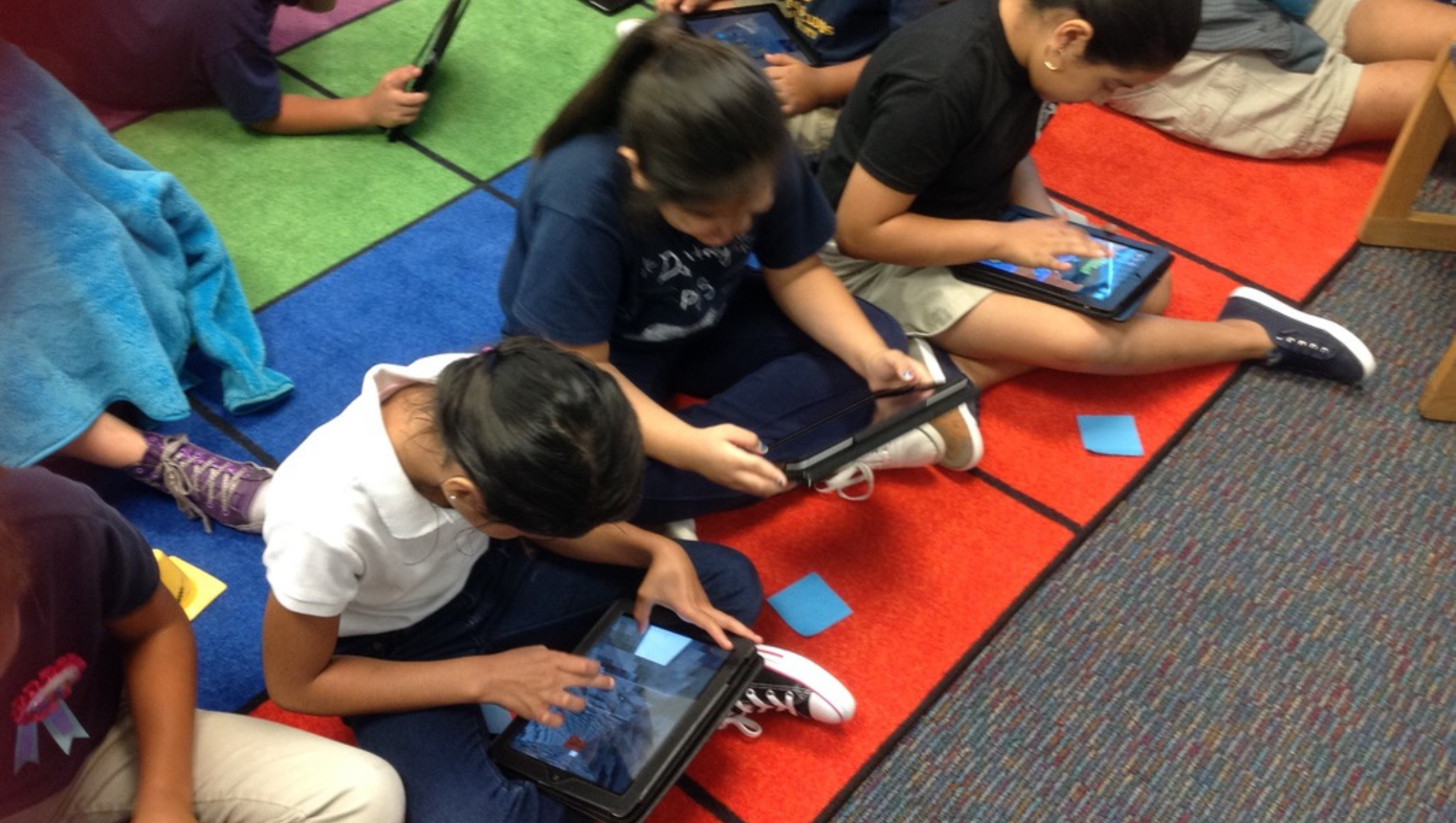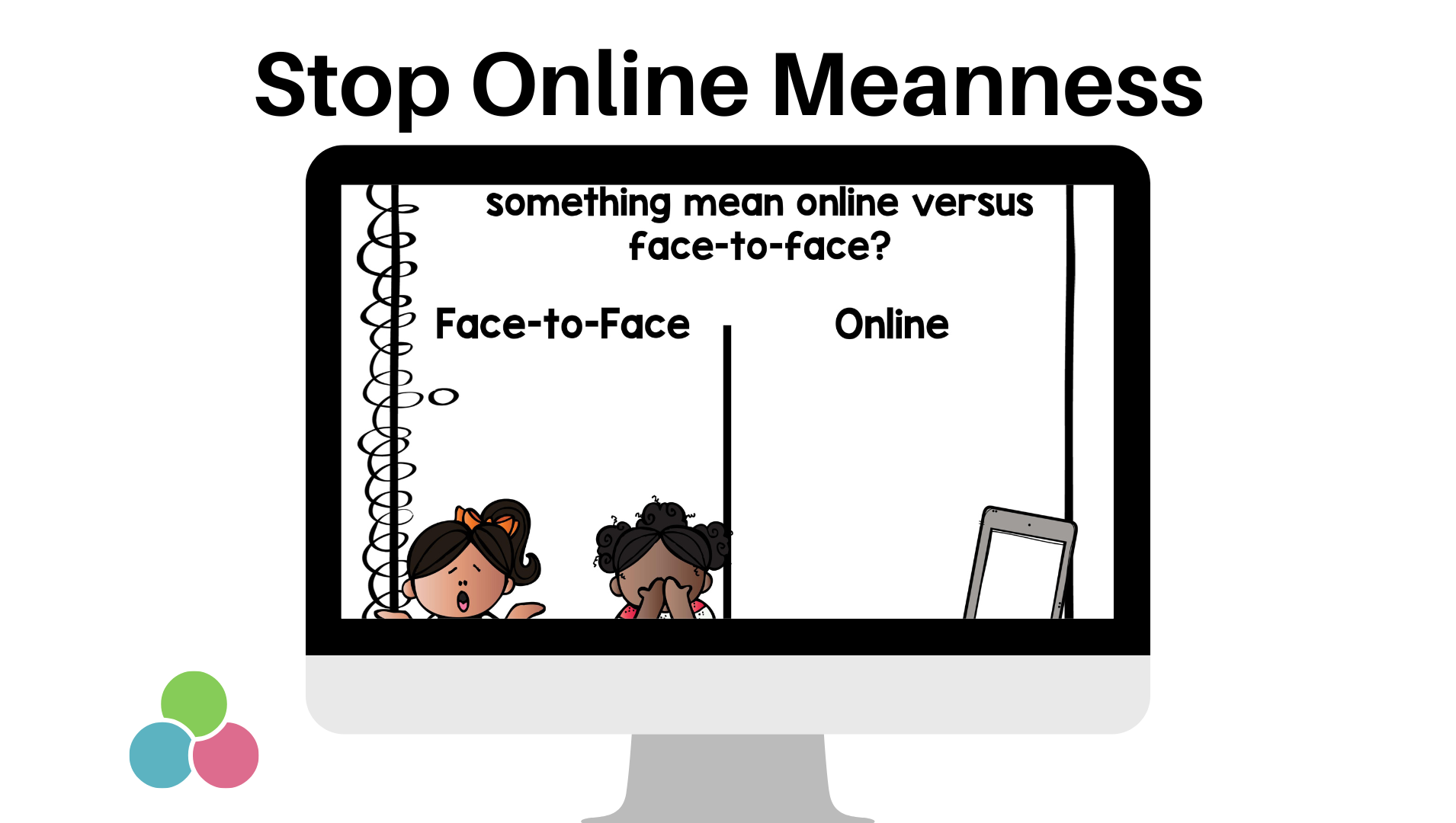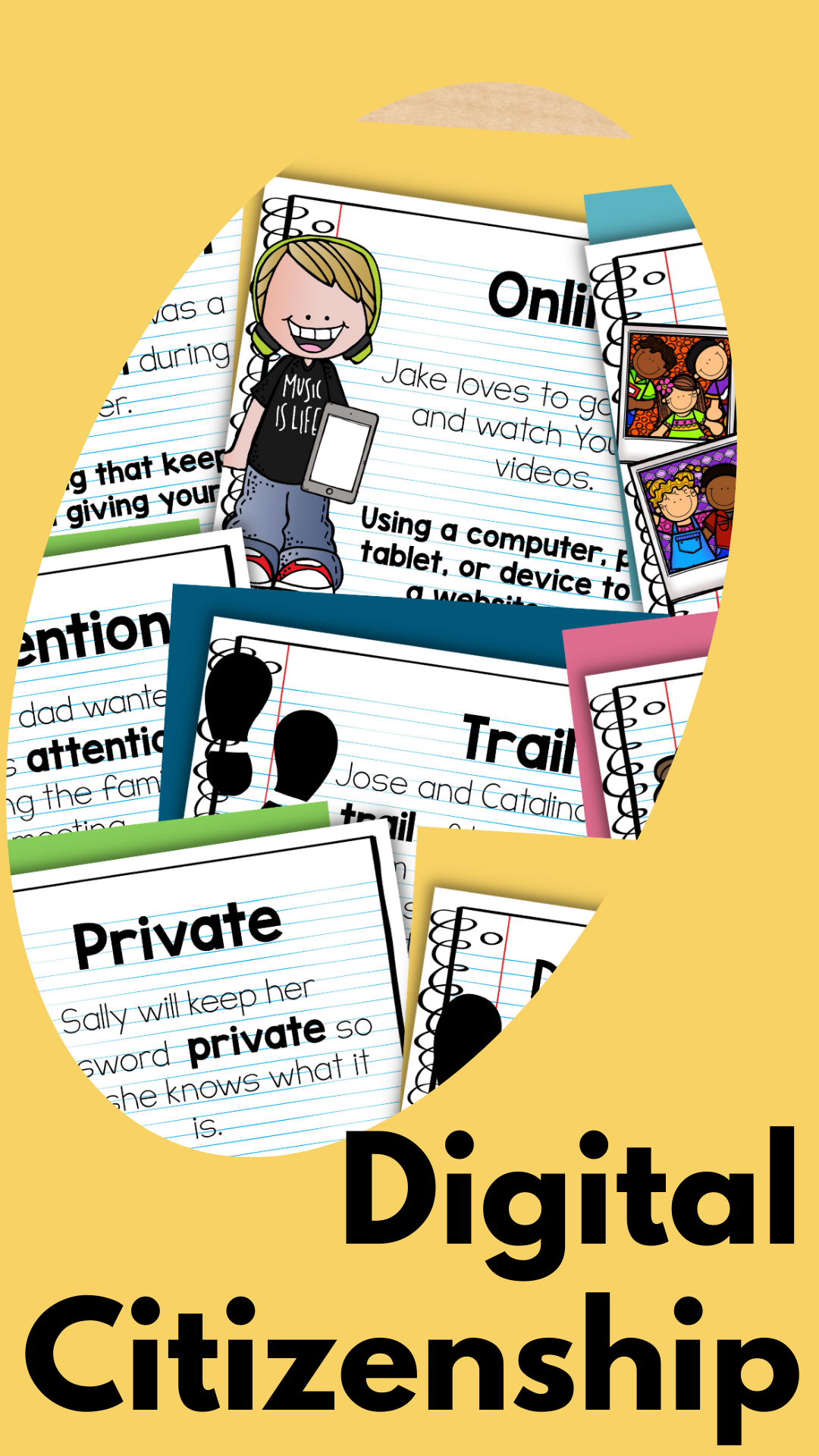OTT 231: What is Digital Citizenship and Why Should Teachers Teach It?
In the vast and ever-expanding digital landscape, being a good citizen isn't just about picking up after yourself or minding your manners anymore.
It's time to add digital to our citizenship checklist for young people! That's right; we're venturing into digital citizenship, where knowing how to navigate the virtual world with grace, wisdom, and a pinch of common sense has become essential for both students and adults alike. So, teachers, put on your capes (metaphorical ones, unfortunately) because it's high time we dive into the wild world of digital literacy and equip our young learners with the superpowers they need to conquer this brave new frontier.
If you tuned in last week, you know I shared a blog post/podcast episode called 9 Important Things Students Really Need to Know About Digital Citizenship. In this episode, I spoke about nine things students should know. Be sure to check that out, as well.
Defining Digital Citizenship and Its Importance
In the age of technology, elementary students must understand the concept of digital citizenship and develop essential skills to navigate the digital world responsibly. We all know that social media platforms have become second nature to children nowadays. From posting pictures with filters that make us look like cute little bunnies to participating in online dance challenges, they are immersed in a digital realm where their actions can have lasting consequences in online communities.
Digital citizenship skills go beyond just knowing how to use a computer or smartphone. It's about learning how to be ethical, responsible, and respectful online citizens. Imagine if there was a digital etiquette class taught at school. How cool would it be if kids could learn not only proper classroom manners but also proper online manners? They need guidance on essential subjects like cyberbullying and privacy protection at an early age when their innocent minds can soak up knowledge like sponges. By teaching them how to navigate tricky situations safely and respectfully online, we're molding them into future tech-savvy leaders who will undoubtedly rule the virtual world – and perhaps even find a solution for those never-ending software updates! So let's empower our elementary students with these crucial digital citizenship skills because, as we all know too well – Ignorance may be bliss, but knowledge is power!
Why Digital Citizenship is Relevant for Elementary Students
Teaching elementary students about digital citizenship is more relevant than ever in today's digital age. Sure, they may be young, but consider this: these little humans are growing up in a real world where smartphones and tablets are practically embedded in their hands. They can access vast amounts of information at the swipe of a finger, but do they know how to navigate this virtual realm responsibly?
Digital citizenship encompasses various essential elements for our tiny technophiles to comprehend. From online etiquette (aka netiquette) to cyberbullying awareness, internet safety, and keeping your personal information safe, a whole new set of skills must be taught alongside traditional classroom subjects. We don't just want our future generation to be scholars; we also want them to be responsible citizens who can thrive safely in both the physical and virtual worlds.
Think about it from an elementary student's perspective. While they should focus on building sandcastles or learning to ride bikes, they're already navigating complex online platforms with limited supervision. It's like throwing them into a pool without knowing how to swim! By teaching them about digital citizenship early on, we equip them with the necessary tools and knowledge needed for safe exploration in the vast ocean of the internet. So, let's dive right in!
Don't worry if you are feeling a bit overwhelmed. I have digital citizenship lessons to help you navigate this curriculum. You can check it all out on my shop on TpT.
Teaching Responsibility and Ethical Behavior Online
Teaching responsibility and ethical behavior online is crucial, especially for elementary students navigating the vast digital landscape with limited experience. Balancing their freedom of speech with an understanding of its boundaries is essential in shaping responsible digital citizens. We must empower them to express themselves independently while guiding them to utilize their voice responsibly.
Encouraging students to embrace their independent voice opens up opportunities for creativity and self-expression. However, it also demands that we equip them with the knowledge and critical thinking skills to navigate this digital era responsibly. By teaching our young learners how to respect diverse opinions, check facts before sharing information, and engage in constructive dialogue, we can foster a generation that values open discourse while taking ownership of their words' impact on others. (All elements of digital citizenship.)
Educators play a vital role in nurturing responsible online behavior among elementary students. While promoting freedom of speech, we can instill principles like empathy and thoughtful communication as fundamental pillars for ethical engagement online. By emphasizing that every word typed or shared has consequences—real people with real feelings—we empower our young learners to become digitally responsible citizens who believe in the power of their voices but also appreciate the weight those voices carry, and this lesson can enhance their lives significantly.
Navigating the Digital World Safely and Securely
In today's digital age, navigating the online world safely and securely is more crucial than ever, even for elementary students. As our lives become increasingly intertwined with technology, it's vital to safeguard our private information from potential threats. But reminding kids to remember this: their personal details are precious treasures you should only share with trusted sources. Just like how kids wouldn't give away their prized possessions to anyone on the playground, kids should be equally cautious about who gets access to their private information online. Treat it like a secret agent mission – have them protect their name, address, and other personal details as if they were a top-secret solution to defeating an evil villain!
Speaking of villains, the digital world can sometimes feel like one giant maze where we're constantly trying to find our way without getting caught in its clutches. But fear not! By following a few simple tips and tricks, kids will safely navigate these cyber streets in no time. Remember, mental health matters, too! Spending too much time online can adversely affect our children's well-being. So, let's aim for a healthy balance between binging those cute cat videos and engaging in real-life adventures outside of screens. After all, life is meant to be experienced first-hand.
Need a free digital citizenship lesson on Device-Free time? Click below for this free lesson.
Promoting Positive Online Communication and Collaboration
The digital technology world has undoubtedly transformed how we communicate and collaborate. As young elementary school students dive into this digital landscape, teaching them good digital citizenship becomes crucial. It's about more than just keeping them safe online; it's about fostering a positive environment where collaboration thrives, communication is respectful, and kids are demonstrating responsible behavior in class and online.
One way to promote positivity in online communication is by emphasizing empathy. Teaching students how to put themselves in others' shoes before responding to messages or comments can help reduce misunderstandings and conflicts. Please encourage them to consider how their words might be received and remind them that there's a real person with feelings behind every screen. By nurturing empathy early on, we can lay the foundation for a more thoughtful and considerate generation of internet users.
Another critical aspect of promoting positive online communication for elementary students is encouraging active listening skills. Many online platforms require collaboration, meaning children must express their thoughts and truly listen to others' ideas, prompting kids with questions like What did you understand from your classmate's comment? Or what do you think they meant by that? helps develop active listening habits, allows for richer discussions where diverse perspectives are appreciated, and is part of showing responsible digital citizenship in real life and online.
By instilling empathy and active listening skills in our young learners, we equip them with the tools needed to navigate the digital world responsibly, which enhances the lives of all kids. Owning their digital footprint while respecting others' voices opens up opportunities for meaningful connections beyond physical boundaries.
Encouraging Critical Thinking and Media Literacy Skills
In today's digital age, where opinions and facts are often intertwined, the need for critical thinking and media literacy skills has never been more crucial. With myriad information available at our fingertips, it becomes increasingly challenging to discern trustworthy information from what's merely clickbait. We must equip ourselves with the tools to safely navigate this vast sea of information and make smart choices.
As we scroll through social media feeds and news articles, remember that online safety goes hand in hand with critical thinking. The internet is a virtual playground filled with various characters - some genuine truth-seekers while others thrive on spreading misinformation for personal gain. By honing our critical thinking skills, we can differentiate between credible sources and those desperately seeking attention or promoting an agenda.
Developing these skills requires approaching content consumption like Sherlock Holmes investigating a crime scene. Let's scrutinize every piece of information by cross-referencing it with multiple reliable sources before concluding, making this a responsible online interaction. Media literacy calls for refusing to take things at face value and digging deeper into the complexities behind headlines or memes. After all, as witty individuals navigating the web, we owe it not only to ourselves but to society as a whole to be vigilant in seeking accurate knowledge while remaining open-minded enough to question its legitimacy. And we can support students by showing them how to determine valid information, which is a big part of information literacy.
Conclusion: Fostering Responsible Digital Citizens in Elementary Education
In conclusion, we must prioritize the development of responsible digital citizens at an early age, whether during Digital Citizenship Week or throughout the year. With the increasing presence of technology in our lives, elementary schools must equip students with the necessary skills and knowledge to navigate the digital world safely and ethically. Integrating digital citizenship education into the curriculum can empower students to become critical thinkers, responsible internet users, and contributors to positive online communities. Let us strive to create a generation of tech-savvy individuals who excel in their academic pursuits and demonstrate empathy, respect, and integrity in their digital interactions.







